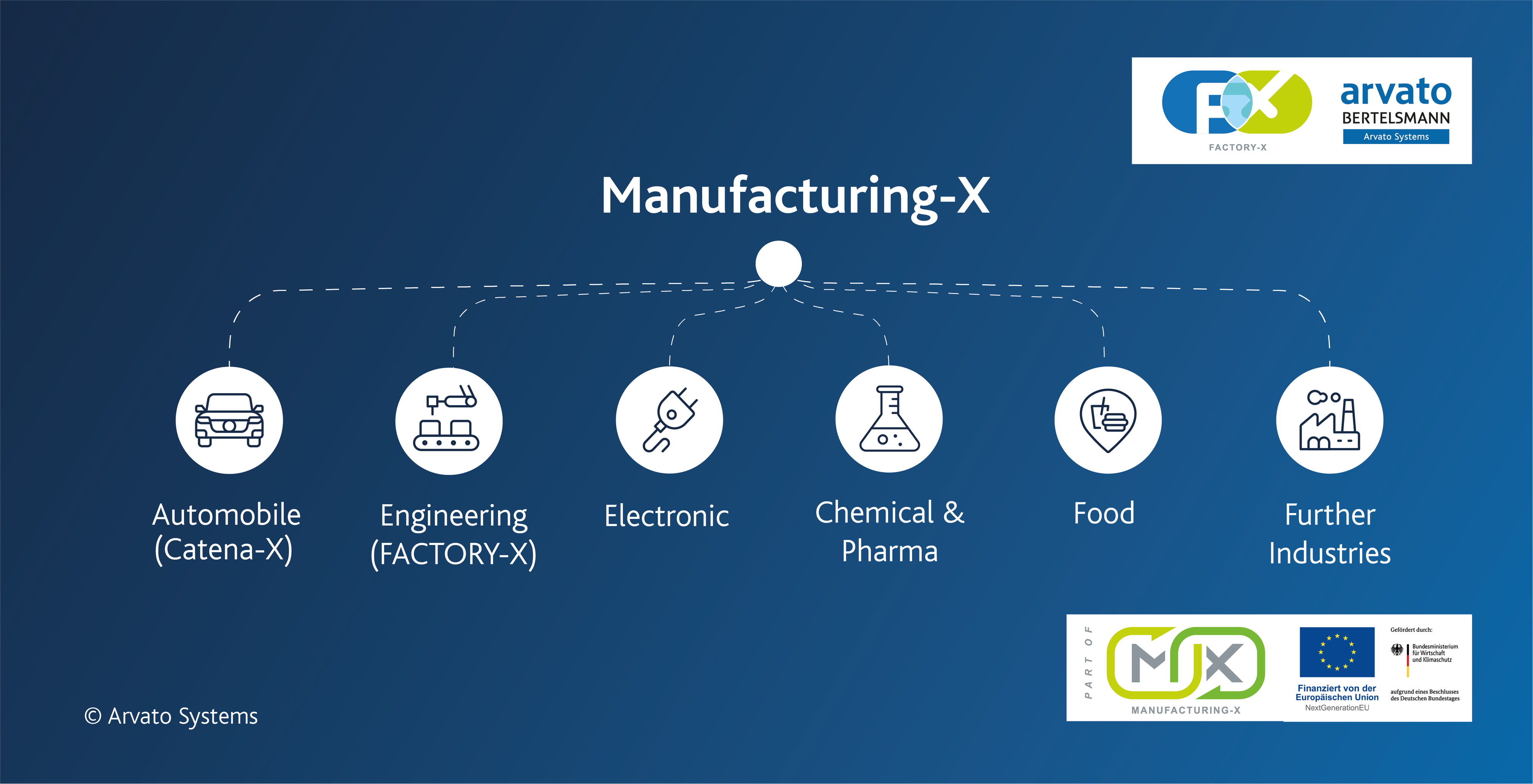
Factory-X - The Data Ecosystem for the Manufacturing Industry
Part 1 - Creating value through data
Innovative, Resilient & Sustainable - The Initiative’s Target Vision
As of February 1, 2024, 47 companies and associated partners have started their work as part of the German government's initiative initiative to digitalize the manufacturing industry. The aim is to establish a digital infrastructure by June 2026 that enables standardized and secure data exchange between machines, production facilities, and factories. The exchange of data promises the following added value:
Factory-X fully addresses the objectives already defined for Manufacturing-X and aligns them with factory equipment suppliers and operators. The overall aim can be summarized as follows:
Funding from the Federal Ministry for Economic Affairs and Climate Protection (BMWK) will be made available to achieve this goal. The first events have already taken place since the start of the project in February 2024: Requirements analyses are being prepared for the individual topic areas to ultimately ensure a holistic project roadmap.
Development and creation of a digital Factory-X ecosystem, taking current standards into account. This is primarily based on the exchange of data between partners.
In view of the objective, interoperability and openness are a comprehensible basic requirement for implementing the business applications designed and prototyped before the competition.
How Do Companies Deal with Factory-X in Practice?
The issue of data consistency is of particular importance for the realization of comprehensive access, from which both large companies and medium-sized enterprises should benefit. Once registered with Factory-X, the user should become a Trusted Business Partner. These partners should have equal and transparent access to the data published on the platform. Access rights can be defined on a granular basis to ensure that the company's data is handled confidently.
11 Use Cases of Factory-X
At the heart of the Factory-X project are eleven different use cases, which are to be initially developed into implementable solution concepts and continuously expanded as part of the project. The specific aim of this project is to create the fundamental basis for cross-company data exchange and, in the long term, to derive standardization options. As Factory-X is a publicly funded project, the results will be made available to the specialist public, consisting of industrial companies with similar business interests and challenges.
The eleven defined use cases address various aspects of real industrial practice and range from
- Collaborative Information Logistics to
- Traceability through to the
- Circular Economy
We have written two more blog posts for you (published on 17 July & 18 July) in which you can find out more about the original drivers of Industrialization 4.0 bundled in the use cases. These should also be relevant for your manufacturing company!
As an associated partner, Arvato Systems is one of a total of 57 partners, including 47 joint partners and 10 associated partners from industry, research and associations in the Factory-X joint project, which is funded by the Federal Ministry of Economics and is a pioneering project for the industry. SAP, our strategic and long-standing partner, and Siemens have taken over the project leadership of the initiative.
Johannes Fuhrmann is Head of Strategic Business Development at Arvato Systems. In this role, he is responsible for the portfolio and product development of the manufacturing industry. His focus is mainly on the topics of digital twin, digital administration shell, and, the development of shared data ecosystems in the industry. Before his career at Arvato Systems, Johannes Fuhrmann held various relevant positions within the manufacturing industry. For example, he worked as a Senior Consultant for Industry 4.0 at Deloitte Consulting and as Head of Digital Operations and Business Development at VELUX. Johannes Fuhrmann completed his studies at the University of Warwick with a Master of Science (MSc.) in Information Systems Management. He also holds a Bachelor of Arts (B.A.) in Technical Business Administration from the Hamburg University of Applied Sciences (HAW Hamburg).
Written by

As Head of Strategic Business Development, Johannes Fuhrmann manages the portfolio and product development for the manufacturing industry, focusing on digital twins and data ecosystems. He previously worked at Deloitte and VELUX. He holds an MSc in Information Systems Management (University of Warwick) and a B.A. from HAW Hamburg.




